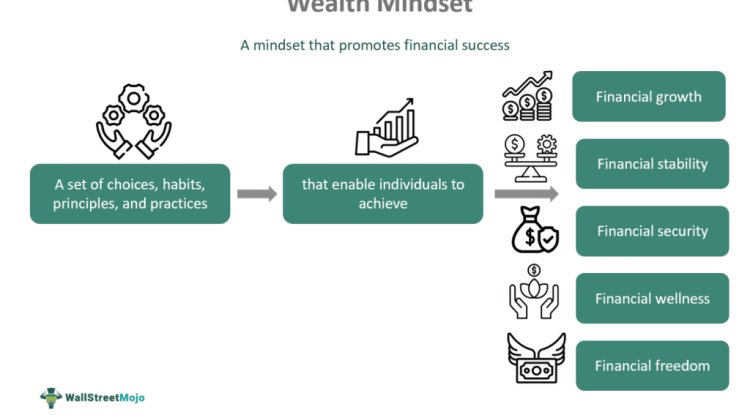Smart Investing: Building Wealth Through Strategic Portfolios
In today’s fast-paced financial world, investing smartly isn’t just a good idea—it’s essential for building sustainable, long-term wealth. Gone are the days when simply saving money in a bank account was enough to secure your financial future. Smart investing, particularly through well-structured strategic portfolios, is now the cornerstone of effective wealth building.

What Is Smart Investing?
Smart investing is not about chasing trends, day trading, or following internet hype. It’s a disciplined, research-driven approach that focuses on long-term growth, risk management, and diversification. Smart investors look at the bigger picture—understanding their financial goals, risk tolerance, and investment horizon—and build portfolios that reflect those elements.
At the core of smart investing is strategy: every asset in a portfolio has a purpose, whether it's to generate income, provide growth, reduce volatility, or hedge against inflation.
Why Strategic Portfolios Matter
A strategic portfolio is like a financial roadmap. It allocates your investments across different asset classes—such as stocks, bonds, real estate, and alternative assets—in a way that aligns with your unique financial goals and life stage.
Here’s why it works:
1. Diversification Reduces Risk
A diversified portfolio spreads investments across various sectors and asset classes. This helps cushion the impact of a downturn in any single investment area. If one asset class underperforms, others may balance it out—preserving your wealth over time.
2. Goal-Based Planning
Strategic portfolios are designed with specific outcomes in mind—buying a home, funding a child’s education, or retiring comfortably. By aligning investment choices with clear goals, investors stay focused and disciplined, even during market volatility.
3. Risk Management
Every investor has a different risk tolerance. Strategic portfolios consider this by blending low-risk and high-risk investments to achieve a balanced, customized approach that feels comfortable for the individual.
4. Tax Efficiency
A smart portfolio doesn’t just grow—it grows efficiently. By selecting tax-advantaged accounts (like IRAs or 401(k)s) and optimizing investment timing, you can reduce your tax burden and keep more of your gains.
Components of a Strategic Portfolio
While portfolios vary depending on individual goals, here are key building blocks:
-
Equities (Stocks): Offer long-term growth but come with higher volatility. Best for younger investors with a longer horizon.
-
Fixed Income (Bonds): More stable and provide consistent income. Good for capital preservation and income generation.
-
Real Assets (Real Estate, Commodities): Offer inflation protection and diversification.
-
Cash or Cash Equivalents: Provide liquidity for emergencies and opportunities.
-
Alternative Investments (Private Equity, Hedge Funds, Crypto): High risk, high potential return—best in moderation for experienced investors.
Building a Smart Investment Strategy
-
Define Your Goals: Know why you're investing—be specific.
-
Assess Your Risk Tolerance: Are you aggressive, moderate, or conservative?
-
Choose the Right Allocation: Based on your age, goals, and market conditions.
-
Rebalance Regularly: Markets shift, and so should your portfolio. Review and adjust at least once a year.
-
Stay Informed but Disciplined: Don’t let emotions or headlines drive your decisions.
The Role of a Financial Advisor
While some investors go it alone, many benefit from working with a financial advisor or wealth manager. These professionals can help design and monitor strategic portfolios, offering personalized insights and taking the stress out of complex decisions.
Final Thoughts
Smart investing isn’t about getting rich quick—it’s about getting wealthy steadily and sustainably. Strategic portfolios empower you to take control of your financial future, offering both growth and security. Whether you're just starting out or looking to optimize your current investments, now is always the best time to invest wisely.
What's Your Reaction?




















